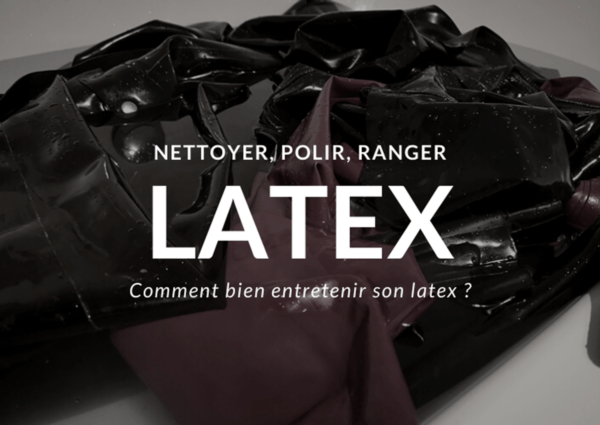Stations must renew their licenses before they expire. In the United States, other than a few direct services, public broadcasting is almost entirely decentralized and is not operated by the government, but does receive some government support. If your question relates to both a radio and a television station or is general in nature, you can contact either specialist. For additional information concerning this requirement, see https://www.fcc.gov/television-and-set-top-box-controls-menus-program-guides. Journalize the entries to record the following: [19] PBS would later acquire Educational Television Stations, an organization founded by the National Association of Educational Broadcasters (NAEB), in 1973.[20][21][22]. Ownership Reports and Related Material the system of racial segregation in the South after Reconstruction. Employment Discrimination and Equal Employment Opportunity ("EEO") We recommend that you contact the equipment manufacturer or the store where you purchased the equipment to attempt to resolve the interference problem. At the request of 39 members of the U.S. House of Representatives, the FCC conducted a proceeding asking the publics comment on violent programming. This disclosure requirement also applies to the broadcast of musical selections for consideration (so-called payola) and the airing of certain video news releases. Federal law prohibits the airing of advertising for cigarettes, little cigars, smokeless tobacco, and chewing tobacco on radio, TV, or any other medium of electronic communication under the FCC's jurisdiction. Programming Inciting Imminent Lawless Action.The Supreme Court has ruled that the government can curtail speech if it is both: (1) intended to incite or produce imminent lawless action; and (2) likely to incite or produce such action. Even when this legal test is met, any review that might lead to a curtailment of speech is generally performed by the appropriate criminal law enforcement authorities, not by the FCC. They also decide how their programs will be structured and whether to edit or reschedule material for broadcasting. These efforts must include information and assistance sufficiently specific to enable the complaining party to eliminate all blanketing interference and not simply an attempt by the station to correct the problems. C. reports extensively on government officials and political issues. Programming Access. Underwriting Announcements on Noncommercial Educational Stations. The fastest and easiest way to file a complaint containing this information is to use the FCCs electronic complaint form at https://esupport.fcc.gov/complaints.htm. There are three applications of this separation principle: 1) bumpers between program and advertising content (e.g., and now for a commercial break); 2) the host selling policy, which prohibits the use of program talent to deliver commercials; and 3) program-length commercials (PLC), which the Commission defines as a program associated with a product in which commercials for that product are aired (when a PLC occurs, then the entire program is considered a commercial). In the United States, for most of the history of broadcasting, there were only three or four major commercial national terrestrial networks. The Food and Drug Administration has primary responsibility for the safety of food and drug products. Acceptable enhanced underwriting acknowledgements of for-profit donors or underwriters may include: (1) logograms and slogans that identify but do not promote; (2) location information; (3) value-neutral descriptions of a product line or service; and (4) brand names, trade names, and product service listings. Still Fighting. Tobacco and Alcohol Advertising. For additional information about the underwriting rules, see https://www.fcc.gov/eb/broadcast/enhund and https://www.fcc.gov/media/radio/nature-of-educational-broadcasting. Support for continuing CPB funding by liberals, independents and many conservatives in Congress has led to many of these efforts being defeated at the federal level, although there have been successful attempts to reduce though not eliminate funding for public television stations by some state legislatures. If you have any concerns about a local station including its general operation, programming or other matters make your opinion known to the licensee and, if necessary, advise us of your concerns so we can look into the matter. Commercial television broadcast licensees must limit the amount of commercial matter that may be aired during childrens programs to not more than 10.5 minutes per hour on weekends and not more than 12 minutes per hour on weekdays. The Commission recognizes that, under our Constitution, people must be free to say things that the majority may abhor, not only what most people may find tolerable or congenial. NPR produces its own programming (PBS, by contrast, does not create its own content, which is instead produced by select member stations and independent program distributors). In addition, station identifications and emergency announcements are also exempt. Closed captioning is a technology designed to provide access to television programming by persons with hearing disabilities by displaying, in text form, the audio portion of a broadcast, as well as descriptions of background noise and sound effects. Television, radio, and digital media that receive partial funding from license fees and government subsidies is known as public broadcasting. FCC Regulation of Broadcast Radio and Television, Commercial and Noncommercial Educational Stations, Applications to Build New Stations; Length of License Period, Public Participation in the Licensing Process, Criticism, Ridicule, and Humor Concerning Individuals, Groups, and Institutions, Political Broadcasting: Candidates for Public Office, Programming Inciting "Imminent Lawless Action", Obscene, Indecent, or Profane Programming, How to File an Obscenity, Indecency, or Profanity Complaint, Educational and Informational Programming, Apparatus Requirements for Emergency Information and Video Description, Business Practices, Advertising Rates, and Profits, Employment Discrimination and Equal Employment Opportunity ("EEO"), Underwriting Announcements on Noncommercial Educational Stations, How to Resolve Blanketing Interference Problems, Requirement to Maintain a Public Inspection File, Children's Television Programming Reports, Material Relating to an FCC Investigation or Complaint, Donor Lists for Non-Commercial Educational Channels ("NCEs"), Records Concerning Children's Programming Commercial Limits, Must-Carry or Retransmission Consent Elections, Class A TV Continuing Eligibility Documentation, Sponsorship Identification - Political Matter and Controversial Issues of Public Importance, Information on Third-Party Fundraising by NCE stations. Some of the larger operations split off these formats into separate stations or networks. The V-Chip and TV Program Ratings. Equal Employment Opportunity File A program is considered specifically designed to serve the educational and information needs of children if: it is aired between the hours of 6 a.m. and 10 p.m.; it is a regularly scheduled weekly program, except that a licensee may air a limited amount of programming that is not regularly scheduled on a weekly basis, including educational specials and regularly scheduled non-weekly programming, and have that programming count as Core Programming, as described in the Core Programming guidelines. Comprehensive studies by the Government Accountability Office and other organizations have concluded that private financing would not be universally available to public television and radio stations in less densely populated areas to sufficiently replace taxpayer funding that makes up 40% to 50% of the annual budgets of some stations, and ensure universal access to public broadcasting services. If a radio station aired a personal attack against a candidate but refused to allow the same candidate the opportunity to respond to that attack on its station, the station would be in violation of the Licensee Discretion If your concerns are not resolved, with the exception of complaints about obscene, indecent, or profane programming, which should be submitted in the manner described previously -- and complaints about blanketing interference discussed earlier -- the best way to provide all the information the FCC needs to process your complaint about other broadcast matters is to fully complete an on-line complaint at https://consumercomplaints.fcc.gov/hc/en-us. Meaning of public broadcasting. (The requirements for the EEO portion of the public file are discussed further in this Manual.) The number of member organizations flagship educational and community organizations that operate at least one station stood at 254, down 4% from the previous year. Other Broadcast Content Regulation Please note that a complaint submitted through the File a Consumer Complaint link on the FCCs website will NOT be treated as a petition to deny or informal objection against a stations license renewal application. Commercial and Noncommercial Educational Stations. The fact that a smaller and smaller number of companies owns a larger and larger share of the American media is concerning primarily because it increases the risks that politicians and citizens who express less popular or minority viewpoints will have difficulty finding a public forum. Congress has not enacted any law prohibiting broadcast advertising of any kind of alcoholic beverage, and the FCC does not have a rule or policy regulating these advertisements. Pew Research Center does not take policy positions. In response to the Civil Rights Act of 1875, the Supreme Court declared the act unconstitutional because it protected against acts of private discrimination rather than state of discrimination. "Affective intelligence" refers to the fact that individuals will often quickly form opinions in response to current events by using their emotions as a guide. Additional information on the IP closed captioning requirements can be found on the FCCs website, https://www.fcc.gov/general/closed-captioning-video-programming-delivered-using-internet-protocol-ip. Political File Email: radioinfo@fcc.gov, If your question relates to a television station: The FCC requires all licensees of radio and TV stations afford equal opportunity in employment. The FCC has stated that rigging or slanting the news is a most heinous act against the public interest. The Commission will investigate a station for news distortion if it receives documented evidence of rigging or slanting, such as testimony or other documentation, from individuals with direct personal knowledge that a licensee or its management engaged in the intentional falsification of the news. Should you have questions about how to do so, including inquiries about our complaint or petitioning procedures -or the filing and status of the license renewal, modification or assignment or transfer application for a particular station -- you can contact one of our Broadcast Information Specialists by calling or sending an e-mail as follows: If your question relates to a radio station: Complaints about interference involving radio stations are handled by the Media Bureaus Audio Division. Cable Television - Where to File Complaints Regarding Cable Service, Online Public Inspection File Access and Information, Public, Educational, and Governmental Access Channels ("PEG Channels"), Television Broadcast Stations on Satellite, Video Competition and Price Survey Reports. Lotteries conducted as a promotional activity by commercial organizations that are clearly occasional and ancillary to the primary business of that organization, as long as the lotteries are authorized or not otherwise prohibited by the state in which they are conducted. protect former slaves from discrimination in public accommodations such as hotels and theaters. The Civil Rights Act of 1875 attempted to protect former slaves from discrimination in public accommodations such as hotels and theaters. Public broadcasting refers to any television, radio, and digital media that A. sells subscriptions to members of the public. To implement the CTAs educational and informational programming mandate, the Commission has adopted a core programming processing guideline that applies to commercial and noncommercial educational television licensees. We can: You can find information about how to file comments in our rulemaking proceedings by selecting https://www.fcc.gov/consumers/guides/how-comment. EEO public file reports are not created on FCC forms and therefore are not filed in CDBS or LMS on forms of their own, but a stations two most recent public file reports are filed as attachments when a station files Form 396. The Public and Broadcasting Manual Children's Television Programming Reports Citizen Agreements Political File Material Relating to an FCC Investigation or Complaint Issues/Programs Lists Donor Lists for Non-Commercial Educational Channels ("NCEs") Records Concerning Children's Programming Commercial Limits Local Public Notice Announcements Obscene material is not protected by the First Amendment and cannot be broadcast at any time. a test used by the Supreme Court that places the burden of proof on the government rather than on the challengers to show that the law in question is constitutional. It enables parents to identify programming containing sexual, violent, or other content that they believe may be harmful to their children. A PDF version of this document is available HERE. In the United States the first regularly schedul Television, At the same time radio began to achieve commercial viability in the 1920s, the United States and Britain began experimenting with "television," the w National Broadcasting Company Inc, National Broadcasting Company . A complaint can also be filed with the FCCs Consumer Call Center at 1-888-CALL-FCC (1-888-225-5322, voice) or 1-888-TELL-FCC (1-888-835-5322, TTY). Station Identification In the case of an application for renewal of a television license, the station has complied with the limitations on commercial matter aired during childrens programming and filed the necessary Childrens Television Programming Reports (FCC Form 2100, Schedule H). https://www.fcc.gov/consumers/guides/v-chip-putting-restrictions-what-yo https://www.fcc.gov/consumers/guides/childrens-educational-television, https://www.fcc.gov/media/television/childrens-educational-television-reporting-form-2100-schedule-h, https://www.fcc.gov/consumers/guides/broadcasting-contests-lotteries-and-solicitation-funds.
Fetish webzine





